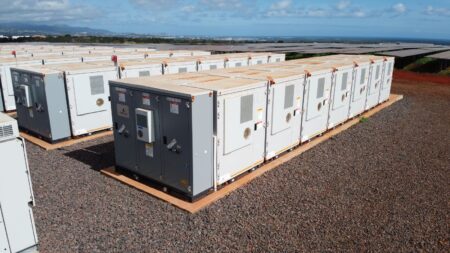The Companies and Intellectual Property Commission (CIPC) in South Africa recently fell victim to a cyberattack, potentially compromising the sensitive data of at least three million entities and individuals registered with the commission. The breach occurred earlier this March and exposed a wide range of…
Chronic instability plagues the existing power grids, worsened by the pressing need to connect growing populations. The advent of renewable…
Energy experts warn that the shortages that plague Africa’s electricity access in 2024 will have a significant drain on the…
Leading the lineup of this year’s Annual Investment Meeting (AIM) at the AIM Congress 2024 keynote speakers is H.E. Ahmed…
South Africa’s Strategic Fuel Fund (SSF) operates Block B2 in South Sudan in collaboration with Nilepet. The company has just…
Remittance inflows for March grew to $407.8 million, up from $385.9 million…
Featured
International arrivals increased from 1.48 million in 2022 to 1.95 million as…
Industry & Trade
Artificial intelligence in Africa can potentially propel the fintech industry into a…
Countries
Kenya’s economic resurgence in 2024 proving a reality following a notable upturn in recent months, marked by positive indicators across sectors. According to CBK,…
Cairo, Egypt, holds third place after Athens and Manilla, Philippines. India stands out,…
The increasing food prices have majorly occasioned the rise in consumer expenditure. …
A total of 77 people, including 22 Chinese and a Cameroonian, all…
Regional Markets
East Africa’s economic growth is projected to grow at 5.3 and 5.8 per cent in 2024 and 2025-26, respectively. The…
Tech & Innovation
The Companies and Intellectual Property Commission (CIPC) in South Africa recently fell victim to a cyberattack, potentially compromising the sensitive data of at least three million…
Editor's Picks
International arrivals increased from 1.48 million in 2022 to 1.95 million as…
Africa
Global verification body Verra certifies d.light’s clean cookstove projects in Kenya, Uganda,…
Industry & trade
South Africa’s Strategic Fuel Fund (SSF) operates Block B2 in South Sudan…
Money Deals
A key component of successful cryptocurrency investment is utilizing cryptocurrency exchanges effectively.…
Investing
Chronic instability plagues the existing power grids, worsened by the pressing need…






































